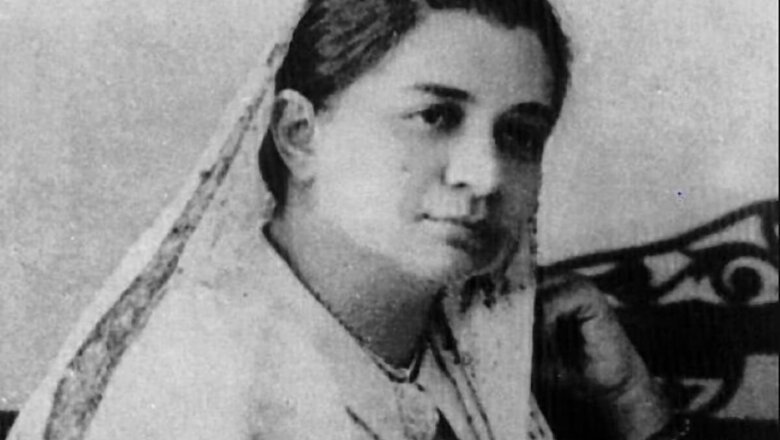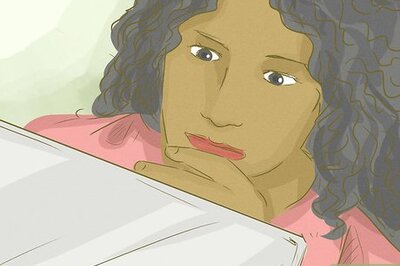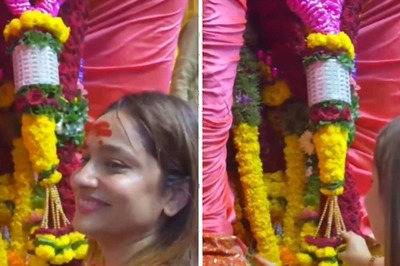
views
Known as India’s first woman to hoist the Indian flag in foreign soil, Bhikaji Cama is an icon for India’s feminists. September 24, 2020 is being celebrated as her 159th birth anniversary.
The freedom fighter from Maharashtra was born in 1861 and is known for her struggle for women’s rights. The political activist is also known for unfurling the first version of the Indian national flag, the tricolour of green, saffron, and red stripes — at the International Socialist Congress held at Stuttgart, Germany, in 1907.
Coming from a privileged Parsi family in Bombay, Cama attended the Alexandra Girls’ English Institution set up by pro-women’s education reformer and judge Manockjee Cursetjee. She used her compassion for the underprivileged and volunteered to help victims of the bubonic plague in the Mumbai Presidency. In the process, she caught the deadly plague herself and in search of better treatment, shifted to Britain in 1902.
After moving to Europe, Cama came in contact with Dadabhai Naoroji, founder of the Indian National Congress and the first Indian to be a British Member of Parliament. Her attempts to return to India were hindered by the British who asked her to stop participating in the freedom struggle if she wanted to stay in India.
This was non-negotiable for her and she continued to make her contributions from Europe.
After the 1907 conference in Stuttgart, where she unfurled the first version of the Indian tricolour, Cama travelled extensively to mobilize public opinion against British rule in India. She spoke especially to expatriate Indians and also talked about women’s rights.
In 1909, she shifted to Paris and founded the Paris Indian Society along with two other activists. It was another branch of the Home Rule Movement which grew to become one of the most important Indian nationalist organisations abroad. Her Paris home later became a refuge for revolutionaries wanted by the British.
Cama has left a revolutionary legacy with her remarkable work in the freedom struggle. Her passion and absolute conviction to stand at par with her male counterparts at a time when most of the women were not even allowed to attend schools speaks for itself. She used her privilege to challenge the unjust authority of the British Raj.



















Comments
0 comment